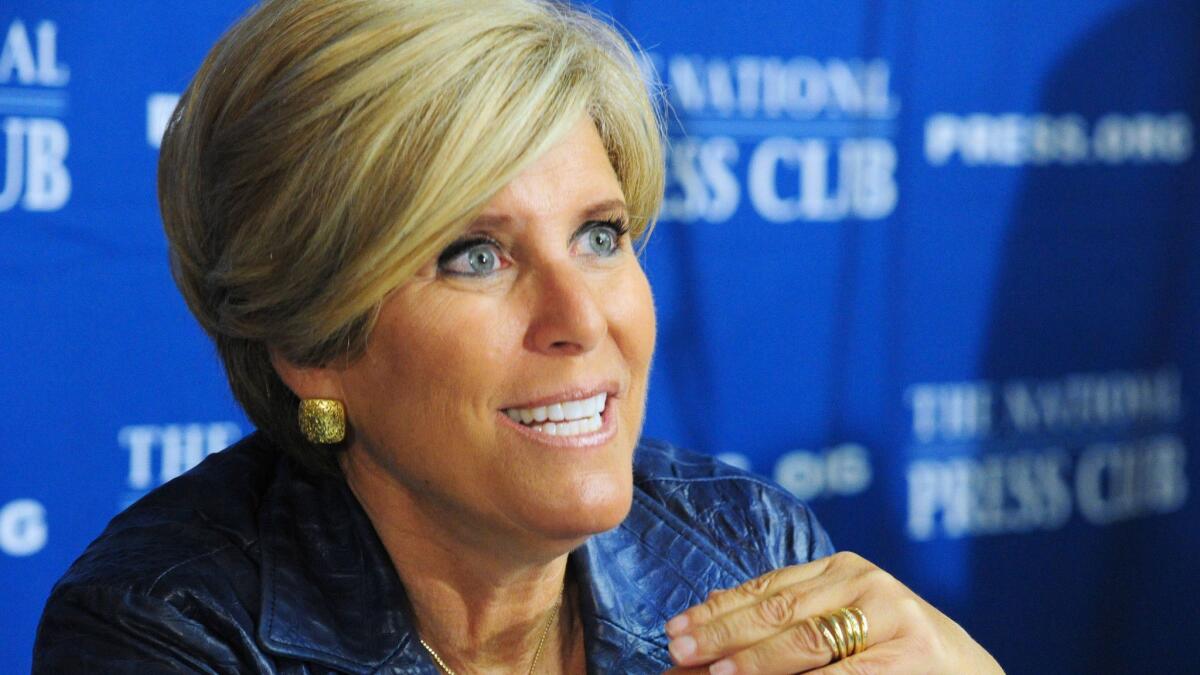Column: A life insurer says you should stop eating out (and buy life insurance instead)

- Share via
Will there be no end to self-interested corporations advising us to abandon our foolish personal finance choices so we can buy their products instead?
The question arises from the latest attempt by a business to lecture us about our wasteful spending on “nonessentials.” This one is based on a poll done for a life insurance company known as Ladder, and reached the internet Tuesday via a tweet from USAToday, which republished an account of the survey from the financial service Motley Fool.
The advice falls into what might be called the “latte factor” genre, which aims to shame ordinary people for spending their hard-earned dollars on petty luxuries like take-out coffee, restaurant meals, and haircuts, when they could become millionaires through thrift. I reported on one recent misbegotten example just a few days ago, after JPMorgan Chase advised customers that their bank balances would be so much the healthier if they “make coffee at home … eat the food that’s already in the fridge … you don’t need a cab, it’s only three blocks.” Etc., etc.
Ladder’s entry in the genre sounds even more witless than that. Like many of these advisories, it’s dressed up with hard figures, lending it the aura of empirical truth: “The average American spends $1,497 per month on non-essential items, according to new research,” reads a digested version published on a PR website. “That can add up to almost $18,000 a year — or more than a million dollars over the course of an adult lifetime.”
That’s $18,000 each year, every year, for 55 years, assuming no inflation. We’ve asked Ladder to comment on the findings, but haven’t heard back.
Let’s look at the shameful expenditures Americans are making, according to the life insurance company. They include restaurant meals ($209 a month), “drinks out with friends and co-workers” ($189), cable ($91), online shopping “for non-essentials” ($84), gym including fitness classes or a trainer ($73), “subscription boxes” ($94), personal grooming ($94) and impulse purchases ($109).
A few words about these categorizations are appropriate. First of all, anyone in modern society who abjured all this spending would be leading a rather ascetic life. No eating out. Drinks with friends — forget it. No cable TV (the survey also frowns on video and music streaming services). No organized exercise. No haircuts.
That might yield our puritan an extra million (in non-inflationary terms) at retirement, but beginning to let one’s hair down at the age of 65 seems a high price to pay for huddling at home during the previous four or five decades.
Moreover, who exactly defines “non-essential” spending? A couple with a brood of screaming children at home might consider a restaurant dinner quite essential, thanks, even with the babysitter cost thrown in. An “impulse purchase” might be frivolous, or might apply to something one needed but forgot to buy until it was seen on a store shelf. Cable and streaming services can be a lot cheaper, video by video, than paying for tickets at a movie theater.
Subscription boxes, I must admit, are a retail category I was unaware of; apparently it involves regular deliveries of goods such as shaving supplies, children’s toys, dog food, and the like. But there’s nothing to say one might not actually save money this way over going out to the store to fill the larder.
The problem, as personal finance expert Helaine Olen points out, isn’t that Americans drain their resources with workaday spending, but that the middle class has been left behind by gains in the economy that have flowed in torrential scale toward the 1%. Many of today’s baby boomers grew up in households that made good incomes in conditions that have vanished. Unions protected middle class lifestyles for their laboring members. Middle-management jobs paid good salaries and offered pensions.
Those families were able to afford two cars, regular nights out for mom and dad, vacations and college educations for their kids who built today’s economy. But the rewards have been denied them. Labor’s share of national income is two-thirds of what it was in the 1950s, while shareholders’ share has soared.
That’s why today’s workers find it harder to make ends meet — not because they’re wasting money on “nonessentials,” but because their just deserts have been snarfed up by corporations and the wealthy.
The Ladder survey gives its purpose away by suggesting that “nonessential” spending interferes with spending on things that are really important, like life insurance. The PR version observes that the leading things the survey respondents say they can’t afford are retirement accounts (38%) and life insurance (35%).
But we’re assured by Ladder co-founder Laura Hale that “people tend to overestimate the cost of life insurance. Trading off a couple of smaller short-term purchases per month can support a monthly policy payment. It can give you the longer term satisfaction that comes from making sure your family is protected.”
Of course, life insurance isn’t for everyone. For many people, in fact, it might be quite a sizable nonessential expense.
Keep up to date with Michael Hiltzik. Follow @hiltzikm on Twitter, see his Facebook page, or email [email protected].
Return to Michael Hiltzik’s blog.
More to Read
Inside the business of entertainment
The Wide Shot brings you news, analysis and insights on everything from streaming wars to production — and what it all means for the future.
You may occasionally receive promotional content from the Los Angeles Times.











